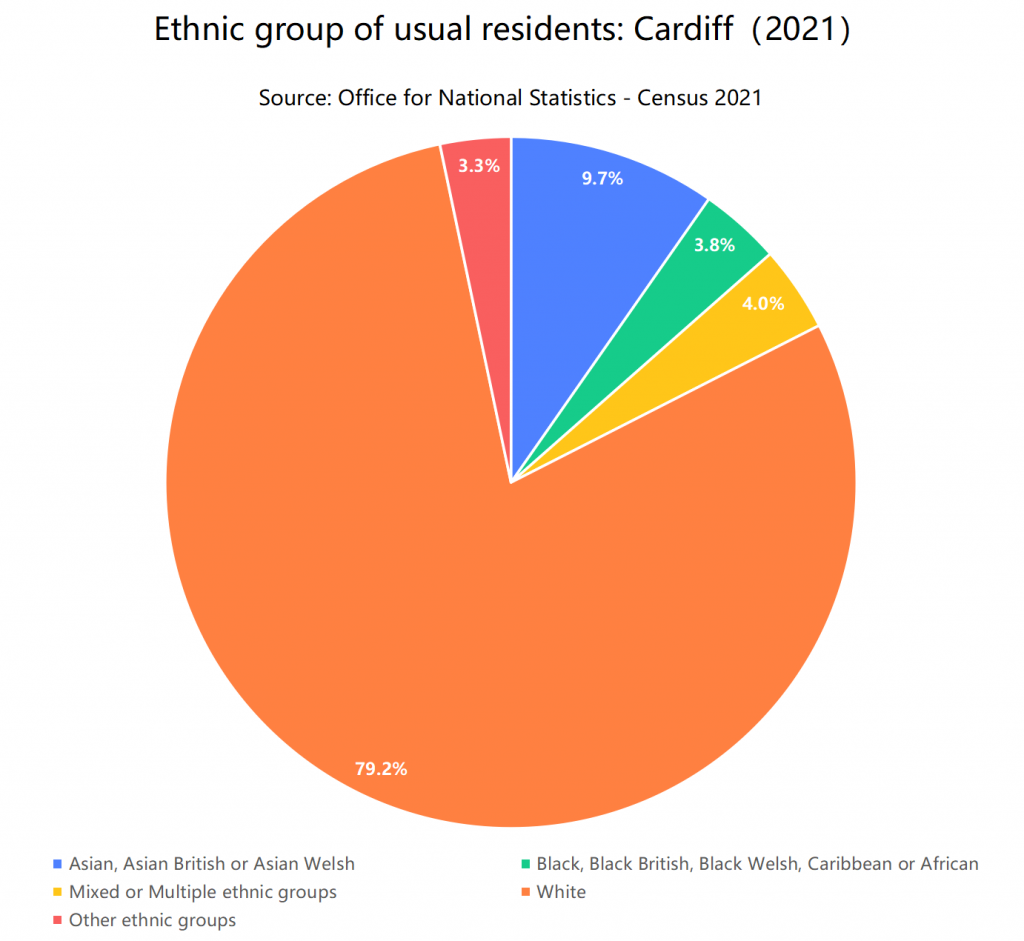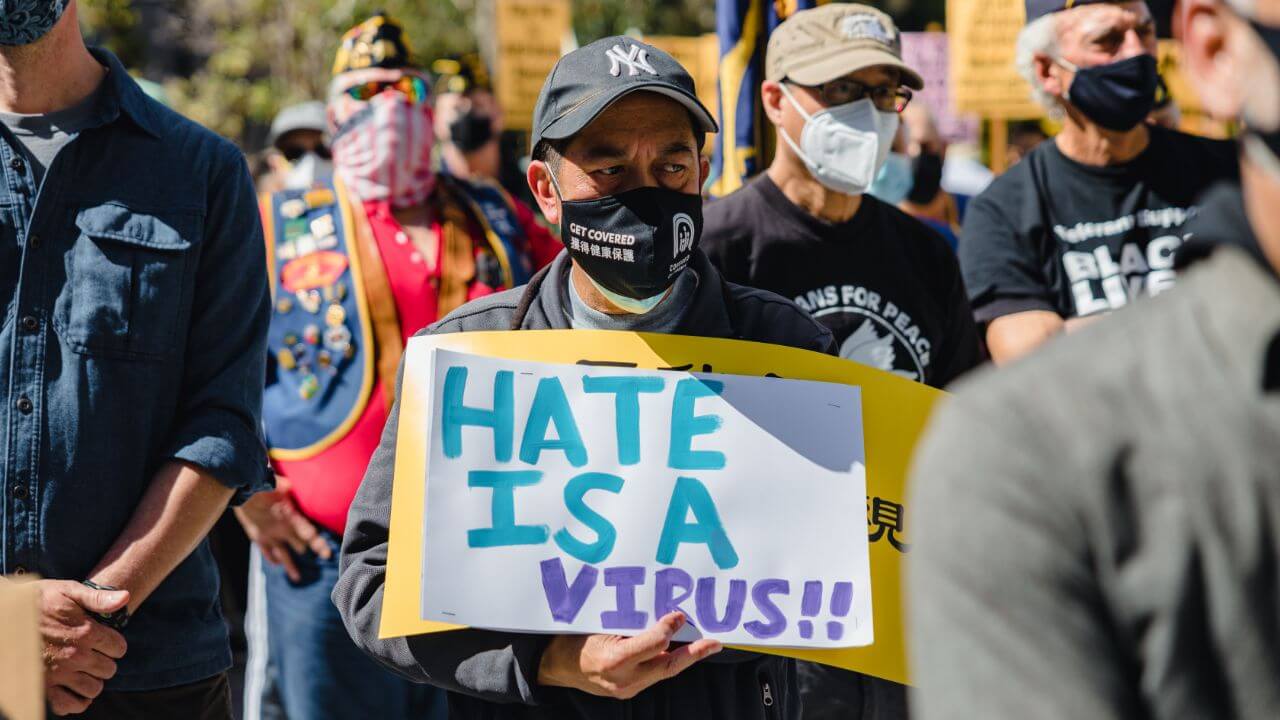Two teachers left their school because of racism. After pandemic, the impact goes on.
A teacher named Tam said goodbye to the school due to racism and lack of help. Her departure is a result of a tough fight against racism, especially during the challenges brought about by the global COVID-19 pandemic.
Tam was a supply teacher for seven years. She considered teaching not just a job but a genuine passion. However, life took an unexpected turn with the onset of the pandemic.
In 2020, at the onset of the pandemic, she recalls being at school. When the news broke that the virus was spreading in China, she encountered several racist comments from students. These comments were made because the students had heard that the virus originated in China. Many of the racist remarks were directed at her personally. This occurred because she was the only Chinese teacher in the school.
The impact of news is quite clear, as one is often accused due to being Chinese and told that the virus originated from China, making Chinese people the perceived cause of the virus. As a Chinese individual, there’s a constant feeling of being blamed when moving around, and it’s unavoidable. This is the effect it has on an individual. It lingers. The concern is that in everyday situations, like in the office, there’s a thought process where one wonders if others look and think, “She’s Chinese; does she have the virus?” Such thoughts are involuntary. That’s the impact it brings.
Tam had a student who spat in a sink in one of her lessons. She said: “I told him off and I said,‘you don’t do that. Why did you do that?’ He said because he had heard on the news that the virus came from China. Because I was Chinese, he felt that he had to clear his throat which was absolutely awful.”
As the only Chinese language teacher at the time, Tam became the target of many racist remarks. Regularly enduring verbal criticism, Tam reported these incidents to the school administration, but unfortunately, the school’s support was lacking. Being the only teacher of Chinese descent, it seemed like Tam’s complaints fell on deaf ears.
She didn’t think about reporting it to the police at the time, but now she realises she probably should have. However, being a teacher and the incident involving a pupil, she hesitated due to her position in the school. She felt that because of her role, reporting it to the police might be seen differently.
For those reasons, she didn’t feel comfortable reporting it to the police. Instead, she reported the incident to the school’s head teacher and other teachers. However, despite the acknowledgment by the teacher and some colleagues, no substantial action was taken. The matter wasn’t adequately addressed, especially regarding the student involved, leaving her unsatisfied with the resolution.
Tam said: “Because the student was still allowed, was still going around in the school, and I was still targeted in the school. That’s why I was thankful when we went into lockdown because I didn’t face the school or the students when we were in lockdown.”
Tam and her siblings share a common story of feeling treated differently than their British colleagues. Her brother, a math teacher, faced racism in his school as well, with pupils treating him poorly due to his accent.
Despite being a highly intelligent man, he faced racism during his 20 years in the school. The school didn’t appreciate his expertise. Like Tam, he eventually left the school. Now he is employed by a college.
They’re not recognised. People find it hard to communicate because culturally, it’s so different. Tam married a Welsh man. She feels she understands a lot more. Her brother married a Chinese woman. As a result, even Tam herself and her brother are very different.
Tam is more Westernized. Her brother is still quite Chinese in his thinking and behaviour. His experience of racism is more severe than Tam’s. He told Tam pupils were awful in school and would make fun of him. Those pupils used racial slurs, like “Ching Chong”. The school would turn a blind eye.
His children are all Chinese-looking, but they were born in Cardiff. They are very Westernized. However, they still face racist comments in school, similar to Tam’s mixed-race children. Despite not looking traditionally Chinese due to their mixed-race background, they still encounter racism. Recently, Tam’s son told her they called him “chopsticks” at school. The impact of racism continues.
The portrayal of events in the media, especially on the news, didn’t assist matters. During Donald Trump’s presidency, his continuous blame on China for the virus, as repeatedly highlighted in the media, negatively affected schoolchildren. Her mixed-race boys, being half Chinese, experienced mockery in school due to Trump’s statements about the virus originating from China, blaming Chinese people.
As a parent, some advise their children to ignore racist comments, while others choose to complain to the school. However, even if the school acknowledges the issue, the actions taken are often minimal. Detentions are rarely given, and serious consequences for the students making racist comments are infrequent.
After lockdowns, despite returning to school, Tam felt isolated due to the lack of support. Unable to endure the hostile environment any longer, Tam made the tough decision to resign.
Leaving the familiar school, Tam still felt difficult. The emotional toll of battling racism during a pandemic had become too much.
“It was very hard at the time, especially because I didn’t have any support from the school, because the school didn’t know how to handle it… They didn’t know how to deal with the students. They didn’t know how to support me. They didn’t,” said Tam. In the end, Tam simply wanted to make things easier for everyone. She decided to resign.
After that, she taught at a college for nearly two years. Once again, she found herself compelled to leave her job, despite her genuine love for teaching. In her previous role, she worked in an Engineering department. Based on-site, she was the only woman in the department and, once again, the only Chinese lecturer. The sense of not fitting in endured, prompting her to separate from the department once again.
This prompted Tam to seize the opportunity when a teaching position at the charity organisation, Race Equality First, became available. Believing it to be the perfect job, she applied, was shortlisted, went through an interview, and successfully secured the position. Now Tam is working as a training manager in the charity organisation, dealing with all kinds of racism in Wales.
She said: “So now the rest of my career, I hope, to devote into educating people about the effects of racism and the long-term effects. And yeah, the personal sort of impact it has on people.”
Tam would like to educate people by asking questions to help them reflect. In her training sessions, she poses questions such as why people make racist comments. She encourages participants to think and provide their own answers. Through their responses, she guides them towards contemplating deeper issues.
Tam mentioned “microaggressions”. She provided examples. People often hear her on the phone and assume she is British. Then, when they met her, they expressed surprise, saying, “Oh I didn’t realise you Asian, you didn’t sound Asian on the telephone”. Another example is when people use stereotypes, “You’re Chinese, you must be really good at math”. Tam tried to educate people to think about their words.
Tam is often asked questions like, “Where are you from?” Although she is a British citizen and has been living in Cardiff for more than 40 years. She says she is from Cardiff. They said to her, “no no no no… Where are you really from?” If she said “Cardiff,” they might insist, “No, where are you really from?” It makes her wonder why they don’t believe that she is genuinely from Cardiff. Through conversation, dialogue, and training, she encourages people to analyse and reflect on why they ask certain questions. She doubts the necessity and motivation of such questions.
Racism, according to Tam, extends beyond visible actions or words. It is often influenced by concealed beliefs, fears of different races, or a lack of understanding. People who make racist comments may do so because they don’t fully comprehend what they are expressing. Racism could also come from fear or some bad experiences in the past.
Tam employs a training and education approach to address racial issues, incorporating her personal experiences into discussions. By sharing her lived experiences, she aims to illustrate the reality of racism, making it tangible for those who may find it hard to believe or understand without firsthand encounters with such issues.
Tam also provides guidance for healthcare professionals, addressing questions on how to treat patients from ethnic minority groups. The training covers cultural considerations, such as dietary taboos based on religious or cultural backgrounds.
In the UK, there’s the Equality Act 2010, a piece of legislation that safeguards individuals from different types of discrimination. Race is identified as one of the protected characteristics under this law. If someone experiences discrimination based on age, sex, race, religion, or other protected characteristics, it is considered unlawful according to the Equality Act 2010. Individuals who believe they’ve been treated unfairly or discriminated against can contact the organisation for assistance.
The charity organisation, Race Equality First, focuses on addressing racial discrimination, particularly in cases of hate incidents and crimes. Individuals experiencing racist comments at work or in public can contact them for support. The organisation engages in discussions, gathers information, and provides ongoing assistance. In genuine cases, they encourage reporting to the police as hate crimes. If classified as a hate crime, the police may investigate and, if needed, build a case for prosecution with the organisation’s help. While rare, the organisation supports victims facing racial incidents, mediates with the police, and offers assistance. The decision to prosecute rests with the police.
The organisation supports individuals who believe they’ve faced unfair treatment or discrimination. They help build cases, mediate with employers, and strive for positive outcomes. In rare cases where resolution is impossible, they assist victims in taking their case to an employment tribunal, though such instances are infrequent. Their goal is always to achieve a negotiated, positive outcome for all parties involved.
The organisation has advice service managers who arrange community events, fostering integration among diverse racial and cultural communities. These events aim to facilitate community integration into broader society. Additionally, the organisation works with ethnic minority communities, providing support, especially to elderly members who may face language barriers. Support includes arranging interpreters for activities like doctor appointments.
Another aspect of their work involves collaboration with international organisations, including the UN, to influence both international and domestic laws. The organisation is consulted by the Welsh Assembly Government for advice and input on initiatives like Anti-racist Wales Action. A crucial part of the organisation’s role is training, with a focus on raising awareness of racism’s effects and promoting racial harmony. Training sessions are provided to a range of organisations, including private and public sectors such as the police force, health authorities, and schools, to educate and foster racial understanding in Wales.

Wales aims to achieve the status of an anti-racist nation by 2030. This is the objective of the Welsh government, and it reflects their current focus. Naturally, they engage in meetings where they collaborate with various organisations to assist in implementing their plans.
“So they’ve set a deadline, but obviously that the deadline is just too ambitious. So they have to extend that now. But the idea is Wales wants to become an anti-racist nation by 2030,” said Tam.
